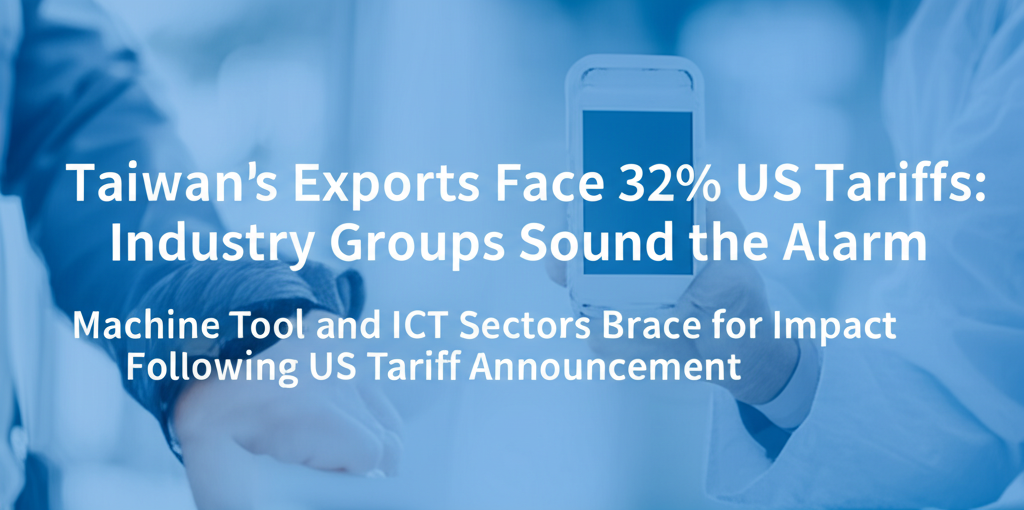Taiwan's Exports Face 32% US Tariffs: Industry Groups Sound the Alarm
Machine Tool and ICT Sectors Brace for Impact Following US Tariff Announcement

Taipei, April 4 - Taiwanese industry groups are expressing serious concerns over the impending implementation of new US tariffs, warning of significant repercussions for key export sectors. The tariffs, announced by the US government, will impose a 32% import duty on a range of Taiwanese goods starting April 9th.
The Chinese National Federation of Industries (CNFI), representing a broad spectrum of Taiwanese manufacturing sectors, released a statement highlighting the extensive scope of the tariffs. The new import duties will affect major Taiwanese exports to the US, including electronics, machinery (machine tools, precision instruments), transportation equipment (auto parts, bicycles), steel, aluminum, and related products.
While the White House has exempted certain goods, such as semiconductors, copper, pharmaceuticals, lumber, energy, and critical minerals, the CNFI pointed out that tariffs on servers and ICT end-products containing Taiwanese chips would still severely impact related industries. Furthermore, the CNFI noted that the 32% tariff levied on Taiwan is more substantial than those imposed on South Korea (25%), Japan (24%), and the European Union (20%). This disparity fuels anxieties regarding the ability of Taiwanese companies to compete in the global marketplace.
The Taiwan Machine Tool & Accessory Builders' Association (TMBA) echoed these concerns, emphasizing the severe challenges the tariffs pose to Taiwan's machine tool and component sectors. The US is the second-largest export market for Taiwanese machine tools, accounting for approximately 15% of total exports in 2024. Key component exports to the US represent roughly 7% of the total, as per the TMBA.
The TMBA attributed the 32% tariff primarily to Taiwan's increasing trade surplus with the US in recent years, which is primarily due to the export of semiconductors and related products. However, they note that the broad-based tariff will affect the entire industrial sector, putting pressure on the machine tool industry, which is largely composed of small and medium-sized enterprises.
The Third Wednesday Club, a Taipei-based association of prominent business leaders, also weighed in, asserting that the US tariff policy will notably impact the semiconductor and traditional manufacturing sectors in Taiwan. The group offered five recommendations to the Taiwanese government, including establishing a negotiation team to engage in tariff talks with the US and seeking the most favorable terms for Taiwan. They also urged actively pursuing a Taiwan-US bilateral tax agreement to prevent double taxation.
